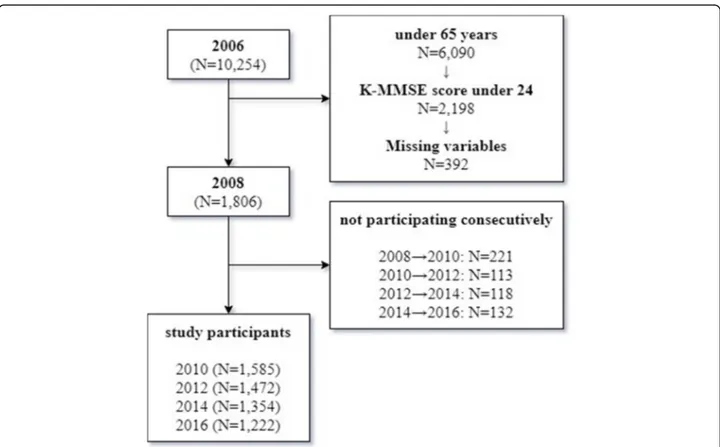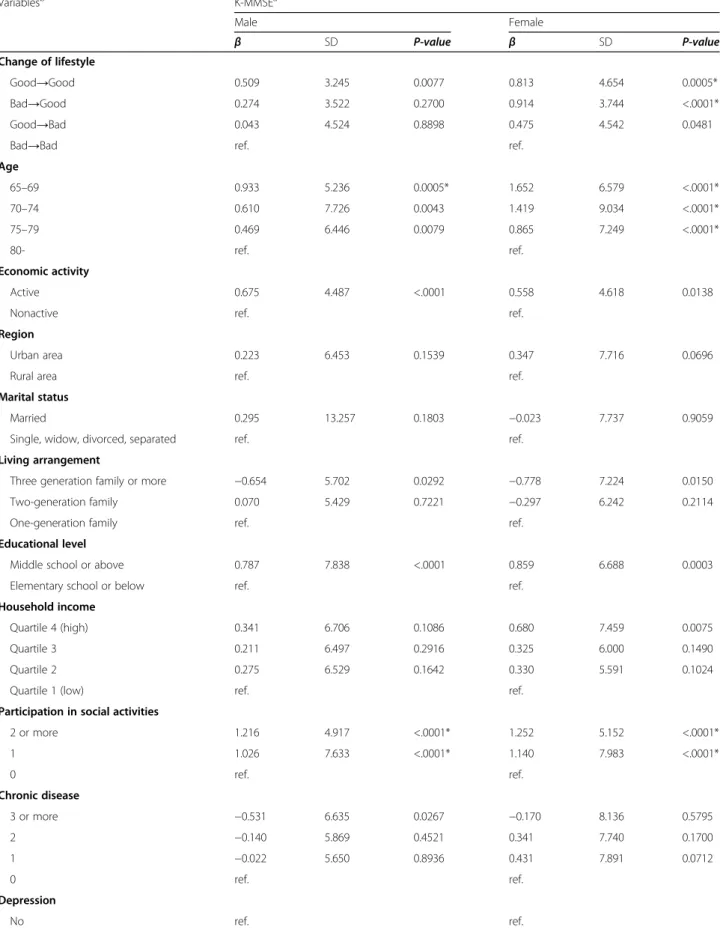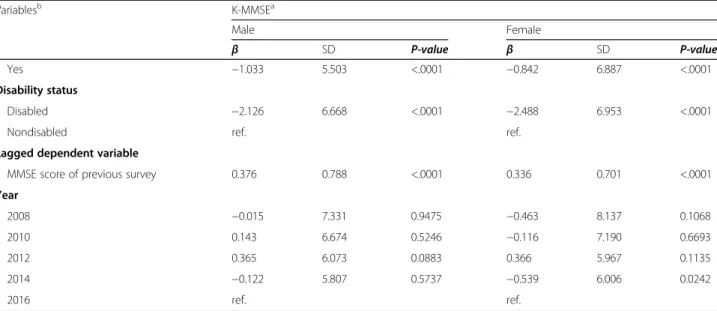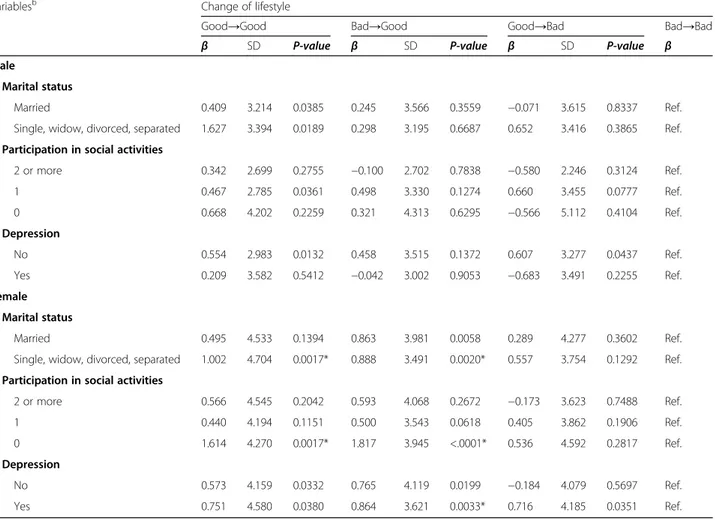Association between change in lifestyle and cognitive functions among elderly Koreans: findings from the Korean longitudinal study of aging (2006-2016)
전체 글
수치




관련 문서
In the control group, lifestyle-related factors were significantly different only in blood glucose (p <.01) and there was no significant difference in
Health promotion lifestyle evaluated using Health Promoting lifestyle Profile (HPLP-Ⅱ) Korean version.. And spouse support was evaluated using a spouse
Objectives: The aim of this study was to study the relationship between smoking, alcohol drinking and vitamin D level among Korean adults using data from the
This study analyzed the characteristics of smokers in term of structure of household, socioeconomic status and smoking behavior and investigated whether
We find the correlation between marital status and current smoking, including interaction with marriage, occupation level, and Year.. Methods : We used the Korea National
Second, the difference of satisfaction of appearance by marital status showed significant difference in body strength among sub - factors of
In other words, the higher level of social support and positive reward in leadership type, the higher level of social approval among the sub-variables
In detail, economic activity and income level in socio-demographic factors showed statistic significance, preparation for the old age in personal factors showed


